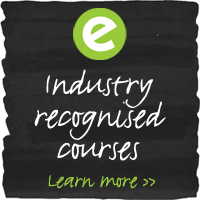
4 Ways To Upskill In Digital
16 October 2013, Tracey Stern
 According to Wikipedia, digital literacy is the ability to effectively and critically navigate, evaluate and create information using a range of digital technologies:
According to Wikipedia, digital literacy is the ability to effectively and critically navigate, evaluate and create information using a range of digital technologies:
What does this mean in reality though? Mashable ran a very interesting article earlier this year, on the 10 digital skills that are essential for college leavers.
Most of these are pretty much what you would expect – Microsoft literacy, setting up WiFi, photo editing etc. But I was particularly pleased to see that at number 6 was HTML and basic web coding.
I grew up in the analogue age, and still have vinyl records, my first Sony Walkman and think all IT problems can be solved by turning the power button on and off. However, in this economic and competitive climate, digital skills are an absolute necessity, regardless of the role for which you are applying.
Being digitally literate
A quick scroll through the major job sites show that on average, in London, there are approximately 500-1,000 jobs at any one time on offer in the digital sector.
As a relative new-comer to the marketing marketplace, digital commands good salaries mainly due to the lack of skill and knowledge in the market, as companies are now seeing the critical need to be digitally aware.
Intellect, the UK technology’s trade association, estimates that 100,000 people are needed to enter the digital sector each year, with firms such as Facebook claiming they are finding a gap in skills, saying that people from other countries are often better qualified.
Many friends of mine in the marketing sector have struggled to find good, affordable resource in key digital areas as the lack of core skills, combined with a very competitive market makes it harder for businesses who need to get up to speed with a whole range of digital disciplines.
As part of this new-age digital dilemma, we have launched an iSkills survey to fully understand the gaps and barriers to entry for digital marketing and budgets.
So here would be my 4 top tips for getting with it digitally:
1. Consume as much free stuff as you can
There is so much content out there now that is free and can be of great value and worth. Check out webinars, networking events, respected blog sites and conferences/exhibitions, examples of which can be seen below:
Social Media Week »
Wired »
IAB »
Adtech »
Google Webmastercentral blog »
Avinash Kaushlik blog »
Mashable »
Lanyrd (conference directory) »
2. Training
It would be extremely bad form to promote the Emarketeers training programme, but if you can, try to invest in some core and practical training. Not only will it provide you with practical ways in which to use a variety of digital disciplines, but it should allow you to network with like-minded digital minds and ask face-to-face questions of the experts who are working in the market on a daily basis.
If you are self-funding, there are organisations who may be able to help you with grants or support. Ensure before you start, that the learning outcomes meet your objectives and that you are clear on whether you need strategic or implementational support and learning.
If you are looking to enhance the skills of your digital team, then assess the best options not just in terms of price, but the overall learning objectives of the team and be honest about their current skills.
Most people have a Facebook and Twitter account for their own personal use, but it becomes a new challenge when applying business principles and cost of acquisition to these channels.
3. Understand the skills gaps and most sought after skills
If you are trying to get into, or ahead in, the digital job market, you ideally need to understand what employers are looking for. Coding seems to be the hot topic at the moment, and some have described programming as the core skill of the 21st century.
In many ways, it has never been easier to learn the fundamental skills which can range from the basic HTML page coding, to creating code that helps get you the best restaurant in town!
4. Ask questions
Much has been made of the acronyms and ‘special’ language that many use in and around the digital world. Ultimately, it’s not rocket science and never be afraid to ask if you don’t understand.
From UX to CMS and IA, it’s all just English and whilst there will be many who speak in this language to appear more knowledgeable, there will also be those who can de-mystify and simplify.
Similarly, if you outsource an aspect of your digital business and are befuddled by the lack of transparency, or ability of your supplier, or the results that are coming back, seek independent advice.


